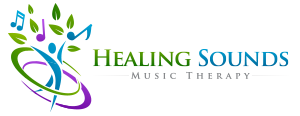Music Therapy Treatment for Depression
The Centers for Disease Control reports that approximately 9% of adults in the US experience the symptoms of depression each year, and that about 3% of adults suffer from major depression (the leading cause of disability for ages 15-44). Additionally, women are 70% more likely to experience depression during their lives than men.
SO WHAT ARE THE SYMPTOMS? (MY VIDEO ON THE SUBJECT IS HERE.)
- feeling sad or having a depressed mood
- change in appetite, significant weight loss/gain that’s not intentional (i.e., you’re not dieting)
- decreased energy
- change in your typical sleep patterns
- loss of interest in activities you normally enjoy
- difficulty concentrating or making decisions that would typically be easy for you to make
- feeling worthless or hopeless about your future
- suicidal thoughts
In order to be diagnosed with depression, most of these symptoms must be present for at least 2 weeks. So the good news is that it is treatable and can be easily managed for most people with medication, therapy, or a combination of the two.
Additionally, there is also a type called situational depression. As the name suggests, it’s primarily experienced related to a specific life situation (like losing your job or ending a long-term relationship). Generally, this type can be treated relatively easily and with short-term therapy and/or medication.
SO HOW DOES MUSIC THERAPY HELP WITH DEPRESSION? DO YOU JUST LISTEN TO SAD/HAPPY SONGS UNTIL YOU FEEL BETTER?
Music therapy involves a lot more than just listening to music! For those times when we’re having a rough day, or things aren’t going well, or we’re just feeling a little down in the dumps– listening to songs that reflect those feelings can be helpful. Quite often song lyrics say exactly how we feel in a way that’s better than we could say it ourselves, so it makes sense that we’d want to listen to sad songs when we’re feeling sad.
BUT WHAT IF IT’S NOT JUST A BAD DAY OR TWO? WHAT IF I’M TRULY SUFFERING FROM DEPRESSION? SAD SONGS DON’T HELP WITH THAT, DO THEY?
In that case, formal music therapy (which is so much more than just listening to your Spotify playlist) can be helpful. Here are some ways that research has shown that music therapy can be beneficial for you when you’re experiencing depression:
- improves self-esteem/self-image
- provides a safe outlet for emotional expression
- decreases feelings of anxiety and stress
- contributes to positive changes in mood and emotional states
- increases feelings of motivation and energy
- empowers clients with tools for their own at-home management of symptoms
- helps develop coping and relaxation skills
Music is used in the therapy sessions in many different ways depending on your personal preferences, needs, musical likes/dislikes, and treatment goals. We may listen to music one session, play instruments in another session, or do artwork as part of our therapy together. We may spend the entire session talking, or speak very little at all and let the music speak for us.
If you think you or a loved one is suffering from depression, please contact your physician for a checkup and possible diagnosis. If you’d like to know more about how music therapy might help you specifically, please contact me here. I’d be happy to answer your questions.





